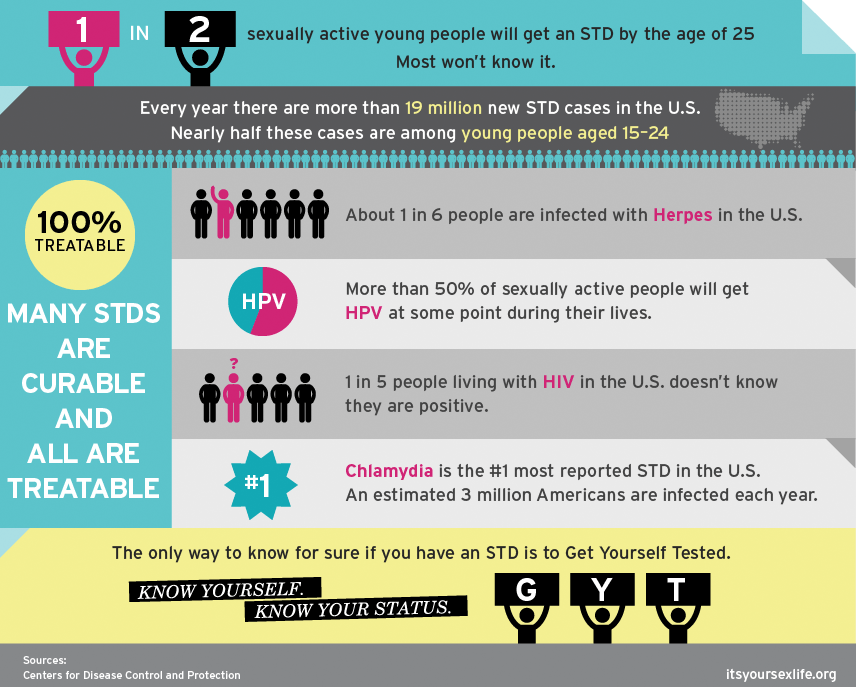Did you know one in two sexually active young people contract a Sexually Transmitted Infection (STI) by the age of 25?
It’s shocking and it’s true. It may comfort you, however, to know that many STIs are curable and they are ALL treatable. If you think you may have an STI and would prefer to talk to a doctor on the phone rather than in person, call CampusMD. It’s a simple way to have a confidential conversation with a physician about your personal life.
Odd rashes, occasional discomfort or unusual skin spots could all be signs of an STI. Who knows, maybe you’ve mistaken herpes for that razor burn? Either way, it’s important to have the STI conversation with an expert.
After speaking to a doctor, you must get tested. Many STIs manifest silently and getting tested is the only way to know for sure. Remember, possibly half of the people sitting in your class could potentially be infected. So why aren’t you getting tested?
“Like many people, barriers to testing for students include denial, misunderstanding or risks, or simple fear,” said Kevin J Kelleher, M.D., a board-certified Family Physician for 17 years and Medical Director of CampusMD.
If you feel this fear, take the first easy step by calling a doctor. CampusMD, for example, gives you immediate access to a physician 24/7. This gives you an opportunity to ask questions and discuss signs and symptoms you may be concerned about. It’s also a chance to better understand exactly what is involved in testing.
1. Blood sample
2. Urine sample
3. Discharge, tissue, cell or oral fluid sample
4. Physical examination
CampusMD is always available to answer your questions on STIs. This nationwide telehealth service connects students to an independent network of licensed physicians across the United States 24/7. The doctor on the line will ask you a series of questions about your symptoms and can call in a prescription if needed. Even if it’s midnight—you can reach a CampusMD doctor. Talk about making life easy.


















